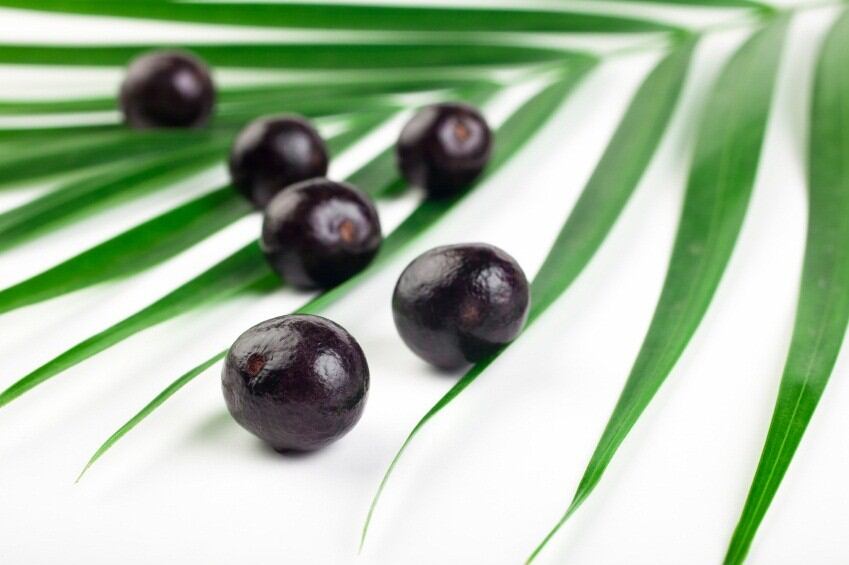Açai berries (pronounced ah-sigh-ee) have long formed part of the staple diet of Indian tribes. With the appearance of a purple grape and taste of a tropical berry, it has been shown to have powerful antioxidant properties thanks to a high level of anthocyanins, pigments that are also present in red wine.
It is presently being sold in a number of countries and regions, including New Zealand, Australia, South America, Japan, USA, and the Middle East.
The science
Dr Alex Schauss, senior research director at AIBMR Life Sciences, and a leading researcher into açai (Euterpe oleracea Mart.), told us that, to-date, pulp of the berry has been demonstrated to affect cell signaling, enzyme activity, maintenance of the oxidant and antioxidant balance, receptor sensitivity, gene regulation, and reduction in the production of pro-inflammatory cytokines, while restoring or maintaining functional cellular antioxidant status.
Despite the impressive list, a 2011 review by Heinrich et al (Phytochemistry Letters, Vol. 4, pp. 10-21) concluded the evidence to support the benefits was “insufficient and unconvincing”.
The review was “premature”, said Dr Schauss, “as many of the in vivo studies had just begun to be published.
“Studies reported in 2012, and soon to appear in 2013, will give interest in acai a considerable boost,” he added.
Tim Avila, President of Systems Bioscience Inc. and consultant to Sambazon, concurred: “One thing for sure is that a tsunami of scientific literature is pent up and will be unleashed over the next 24 months, more human studies by academics will be part of this and this will drive further mainstream penetration of açai pulp and juice products against the backdrop of blueberry, cranberry and even orange juice.
“The future looks very bright indeed, and the real huge key to açai is that it has been blessed by nature to be devoid of fructose and sugar of any kind (almost non-detectable amounts of glucose) and so as natural and organic sweetening systems continue to improve taste performance, become less costly and gain consumer acceptance the companies that offer low and no calorie versions of this unique fruit will reap stellar sales (as would cranberry).”
From cells to animals to humans
Dr Schauss said that an important discovery was reported last year when a group working out of the USDA Arkansas Children’s Nutrition Center and University of Arkansas School for Medical Sciences reported the most potent anti-inflammatory flavonoid compound ever found in any food, in acai pulp.
“This helped to explain the results of in vivo studies in rodents in which an acai-enriched fruit and berry juice dramatically reduced the development of atherosclerotic lesions,” he said.
A combination of in vitro and in vivo studies have indicated potential brain health benefits of açai pulp, with the in vivo data to be presented this weekend at the 2013 annual meeting of the Federation of American Societies in Experimental Biology (EB 2013).
‘Good research takes time… and money’

“Good research takes time. It does not happen overnight. It also takes money. Not until MonaVie started providing funding for independent third party studies in 2005, did acai research really take off,” said Dr Schauss.
“In 2006, when we published two seminal papers on acai in collaboration with USDA and numerous university and contract labs based on nine years of research, one would only have found three papers on acai in PubMed. Today there are 119, and the number grows each month.”
Human data, however, remains limited: A couple of human studies have validated the absorption of acai compounds, and their influence on the antioxidant capacity of the individuals (J Agric Food Chem. 2008, Vol.56, pp. 8326-33, and J Agric Food Chem. 2008 Vol. 56 pp. 7796-802)
To date, only one trial has evaluated the effects of açai on metabolic syndrome, or lowering of fasting blood glucose and insulin levels: The pilot study was funded by California-based Sambazon Inc., and indicated that daily intake of the company’s commercial açai pulp in the form of a smoothie was associated with a reduction in levels of blood sugar and total cholesterol of 5.3 and 10.6%, respectively.
“These reductions are greater than those deemed necessary for a change in risk status [for developing diabetes],” wrote the researchers, led by Jay Udani, MD, CEO of Medicus Research, in the Nutrition Journal.
Benefits for joint health have also been reported, and an open-label clinical pilot study involving Dr Schauss using an açai pulp-fortified polyphenolic-rich fruit and berry juice blend (MonaVie Active) indicated a reduction in pain and an improvement in range of motion (J Med Food. 2011, Vol. 14, pp. 702-11).
Claims
With the emerging science promising much, and a nascent superfruit trend taking off, it may be no surprise that some players sought to exploit the market. Unscrupulous claims were made on internet sites, ending with FTC action and considerable fines.
“There is no question criminals using consumer awareness and interest in both acai and resveratrol did a lot of damage to the category,” said Dr Schauss. “As I told the New York Times and other news media, there was no evidence that acai caused weight loss.”
“Unfortunately, a large grant I had secured to support several studies at NIH was rejected because of the unscrupulous claims made on the Internet. We’re back on track, but lost at least four years of research that could have been completed by now because of the scandal. FTC action against the perpetrators helped clear the air.”
Multi-level marketing firm MonaVie blazed an early trail in the acai sector, and currently distributes in 22 countries.
“What hurt network marketing companies likes MonaVie is the proliferation of acai beverages that hit the market found in mass market and wellness retail channels,” said Dr Schauss.
One of the standout mass retail companies to emerge is Sambazon (derived from Saving and Managing the Brazilian Amazon). Avila, who consults for Sambazon, said: “Açai consumer interest and trial purchase continues to grow for the authentic whole food pulp and juice products as validated by the three year expansion of Sambazon brand skus in mainstream grocery, club and WalMart outlets, key interest and adoption from Millennials continues to grow.
“The image of generic açai was only slightly tarnished by the scammers, however real branded items, particularly Sambazon skus have gained penetration and sales velocity in Costco as one example of mainstream adoption.”
Launches
Avila added that there has been a slowdown in ‘açai’ launches throughout retail and foodservice although these skus tended to be ‘açai flavors’ and other non-featured use of the fruit, “or let’s say in name only or ‘pixie dusting’.”
Indeed, a spokesperson for Mintel said that a search of its Global New Product Database (GNPD) indicated that, for food, drink and vitamins and dietary supplement products, acai was used as an ingredient in less than 1% of all launched each year.
Russ Hazen, PhD, Raw Material & Innovation Specialist at Fortitech, Inc., told us that there are a number of materials available in both liquid concentrate/extract and in powdered forms. “I would say the biggest challenge related to working with it is an astringent slightly bitter flavor delivery,” added Dr Hazen.
“This is one of those ingredients that really took off when the ‘Superfruits’ concept came about, and it has continued to ride that wave.”
“The interest in acai domestically and globally continues to grow,” said Dr Schauss. “As testament, note the remarkable range of products that have emerged in recent years that include acai as an ingredient. Scores of cosmetics, shampoos, lotions, toning misters, ‘anti-aging’ serums, etc., have gone mainstream.
“Without question, MonaVie’s remarkable growth from January 2005 through 2009, caught everyone’s attention, especially the Brazilian government that confirmed it was by far the largest importer of freeze-dried and frozen acai pulp in the world.”
Supply issues

So with the increasing interest, can the supply match the demand? Most definitely, said Dr Schauss and Mr Avila.
“The supply of Acai remains abundant not only in the Brazilian Amazon delta but across the Amazon into the western provinces and other countries which has not even been developed yet, small players in Columbia are growing Acai and so forth, the supply is almost infinite,” said Avila.
“The amount of acai palm trees producing fruit seems inexhaustible,” added Dr Schauss.
“One study by the Brazilian government in just the floodplains of the Amazon estimated dense growths on over 11 million hectares. Consider that one hectare can contain between 2500 and 7500 acai palms, and each palm can produce one ton of fruit in five years, it becomes clear the quantity could provide acai to the world’s population.
“Even more so if you move into the interior of the Amazon all the way to Bolivia, which has enormous amounts of acai.”
So what next for this most super of superfruit?
“Based on communications by colleagues at various research centers studying acai, much more exciting research is yet to come,” said Dr Schauss. “What started with an ORAC assay in 1995, and the discovery of its extraordinary antioxidant bioactivity, could not have forecast how important this fruit might prove to be in terms of its benefits to human health.”
